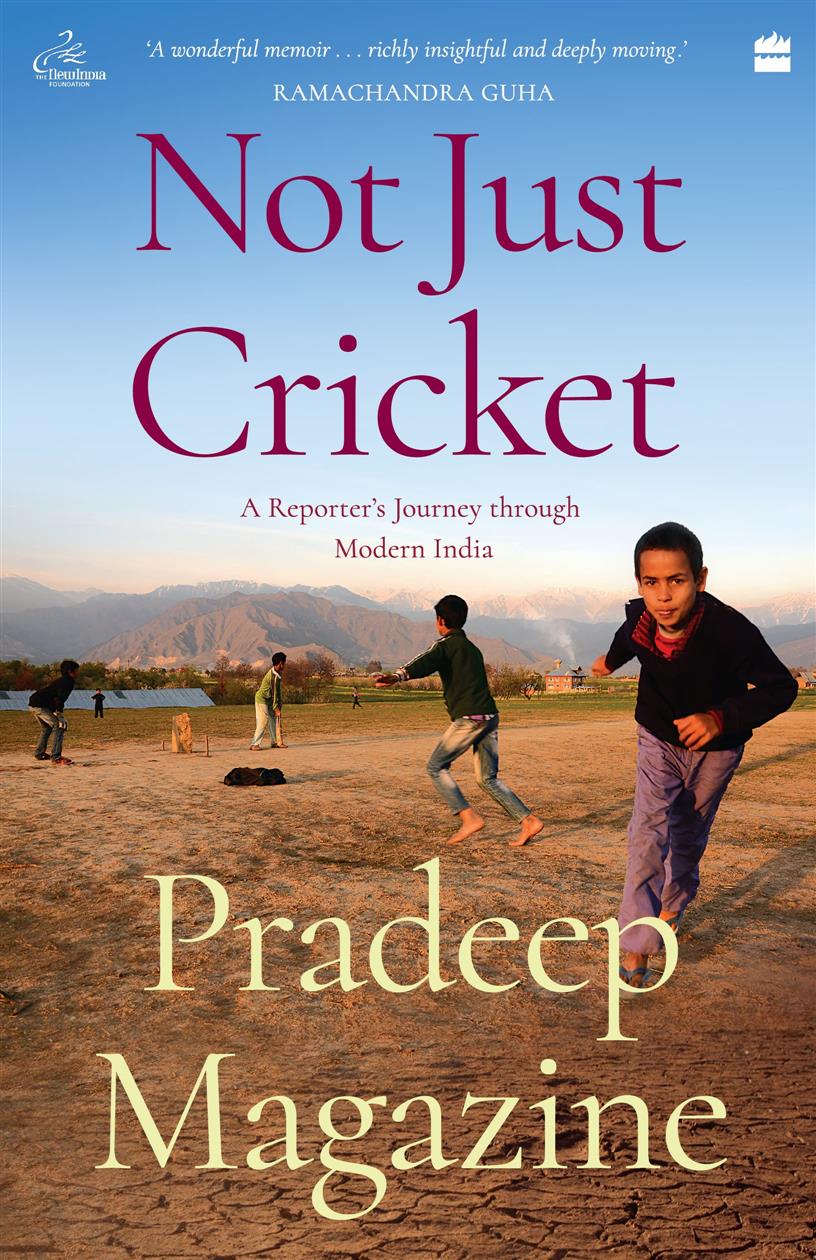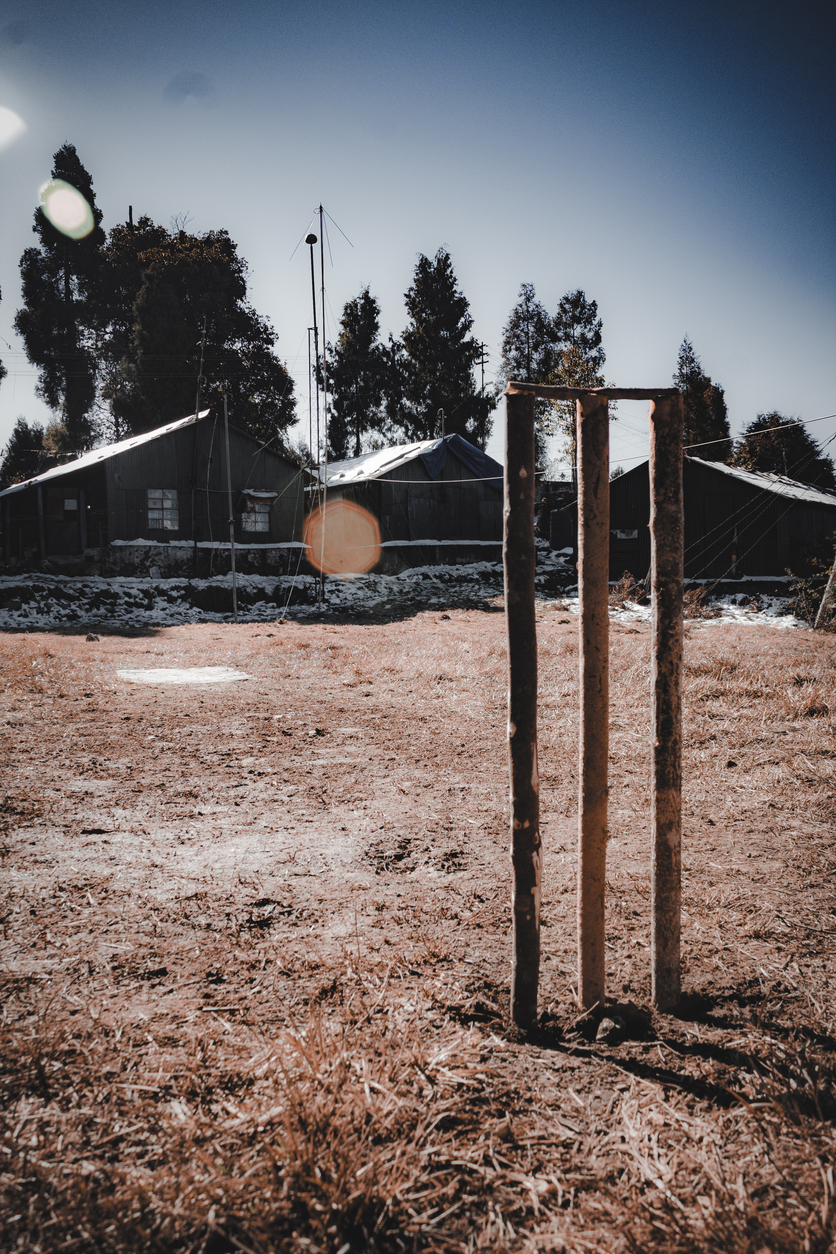
Not Just Cricket ? A Reporter?s Journey through Modern India by Pradeep Magazine. HarperCollins. Pages 384. Rs 599
Rahul Puri
IN cricket as in life, the late Richie Benaud’s comment, in all likelihood said half in jest, carries a lot of weight: “The slow-motion replay doesn’t show how fast the ball was really travelling.” Looking back, the layered reality may not present the real picture. Pradeep Magazine’s memoir is remarkable for the reservoir of personal and cricketing moments it manages to extract and the socio-political landscape it traverses, as he juxtaposes his own journey with that of the sport, and the country itself. ‘Not Just Cricket’ is fascinating for what it sets out to achieve, refreshing for inter-play of the on-field and off-field worlds of Indian cricket and cricketers, exciting for the insights, honest for its reflections. It exudes warmth, much like the eminent journalist himself.

Doing radio commentary was where Magazine felt equally at home, but the inconsiderate treatment despite the appreciatory feedback he got decades back still rankles. The magic of the medium comes alive in his vivid recollection: “It was around 3 am in 1971 when the commentator Ravi Chaturvedi broke down on the radio at the moment of India’s first-ever Test victory in the West Indies. Sobbing, he likened it to the greatest events in Indian history.”
Cricket is the glue that binds the book as it tries to untangle, through the author’s lived and shared experiences, the complex strands of identity, caste, class, minority anguish, majoritarianism, the hatred for the other, nationalism, Pakistan. Amid the difficult conversations, the Gita, Gandhi and Manto are endearing accompaniments.
Only his early years were spent in not yet strife-torn Srinagar, yet Kashmir has a rooted presence in Magazine’s life. In his frequent trips, nostalgia is tinged with a quest to make sense of the ferocity of the communal winds and the fragility of the social fabric that was torn apart. The suffering and pain of the Kashmiri Pandits, the alienation of the majority Muslims, and a Parvez Rasool donning the India cap — in his impassioned writing lurks perhaps an innate desire to find his own quiet corner under a composite Srinagar sun.
The father’s transfer, much before the exodus of Pandits, took the family to Yamunanagar, Panipat, and another hotspot in the making, Amritsar. Here, too, cricket holds the patterns of life together. Candour marks the recall of familiar and not-so-familiar names, forgotten episodes are narrated with wonderment, like packed stadiums for matches between Amritsar’s DAV College boasting of the Amarnath brothers and Hindu College that had Madan Lal. The incident concerning a particular Punjab PRO, though, can only draw bewilderment.
Along with ample fresh perspective on the greats, be it Kapil Dev or Gavaskar, Tendulkar or Dravid, and their chemistry or at times the lack of it, the admiration for the likes of the intrepid Bishan Bedi, the hugely gifted Viv Richards, the giant of a man and the game Clive Lloyd, and a whole range of the champion set shines through.
Joining the Express sports desk in Chandigarh led to tours for league matches, including in militancy-hit Punjab with its horrors of violence, but the monotony finally made Magazine shift and submit to the Delhi grind.
The chapters on the late Tiger Pataudi, the result of hours spent with the “childhood hero”, are insightful for the rare, candid impressions of the “reluctant cricketer” who became captain at 21. The Nawab wasn’t always able to remember match statistics, but “had clearer memories of the chicanery of the officials and how the selectors had played regressive politics with the team”. Or of the “shocking incident of toss-fixing” when Pakistani cricketer Asif Iqbal approached stand-in captain Visvanath, on the eve of the last Test of the 1979-80 series at Eden Gardens, and told him that “regardless of who wins the toss, he will declare that India has won it”.
Pataudi felt there was no serious probe and had some corrective measures been taken, writes Magazine, maybe cricket would not have suffered such a massive blow to its credibility in later years. Magazine, in his reportage though, accorded match-fixing all the seriousness it deserved. His has been a brave and persistent voice in calling out how “cricket was not as pristine as we all had believed it to be”. But it took the Cronje saga for the journalist’s work and book to earn the spurs. ‘Not Quite Cricket’ had not only lifted the veil off match-fixing, but also spoke truth to the BCCI — gloating in the money pool, swarmed with power brokers — of the rot within and the hypocrisy that defined it.
“I have tried my best not to become close to a player. Bias creeps in and it can affect your judgment,” he writes, though given the demands, not many would exercise that option. His work ethic did give him the advantage of being an independent observer, missing out on a report or two that only embedded presence could guarantee, but being spot-on and even prescient about where Indian cricket was headed.
The express treatment given to Sourav Ganguly in the book is attributed to access for an intended biography. The author makes good use of the opportunity, and his own resourcefulness, as he narrates the anything but dull Wright-Chappell eras, big player egos and maturity shown in patch-ups, the pitfalls of falling foul of administrators, and his own interventions in the “best interests of the game”.
Pataudi was beyond embarrassed over the pittance that went for players’ allowance during his time, and here was IPL, a money-spinner, but Magazine had eyes set on the bigger picture. In 2008, after the first auction, he wrote in HT: “Has cricket in India entered the age of sponsored gambling, where its stakeholders are abdicating their responsibility and letting the ‘free market’ forces take control of the sport?”
As expected, there is no shying away from a sharp critique of the decision-makers, be it Merchant, Dungarpur or Dalmiya, Pawar, Bindra, Lalit Modi and Srinivasan, even the new set of rulers. Aditya Verma, a small-town crusader from Bihar, was thrust into the limelight as a petitioner fighting for cleansing the cricket administration of all its malfeasance. The chapter on him is an “absorbing account of all that is inspiring and disgusting in the world of Indian cricket”.
The sport does remain in a fix, notwithstanding the Supreme Court intervention, the Mudgal and Lodha panel reports, or the probe to sift facts from fiction on betting allegations.
Pradeep Magazine should be proud; he’s done it his way, again. And a constant reminder of the wonder that is cricket, and life itself, is the taxi driver from Pakistan. New to Dubai and struggling to make a living, the villager looks at him in amazement that someone would be actually paid to report on a cricket match and bursts into laughter: “Achha ji, duniya mein aisa bhi hota hai.”
Join Whatsapp Channel of The Tribune for latest updates.



























